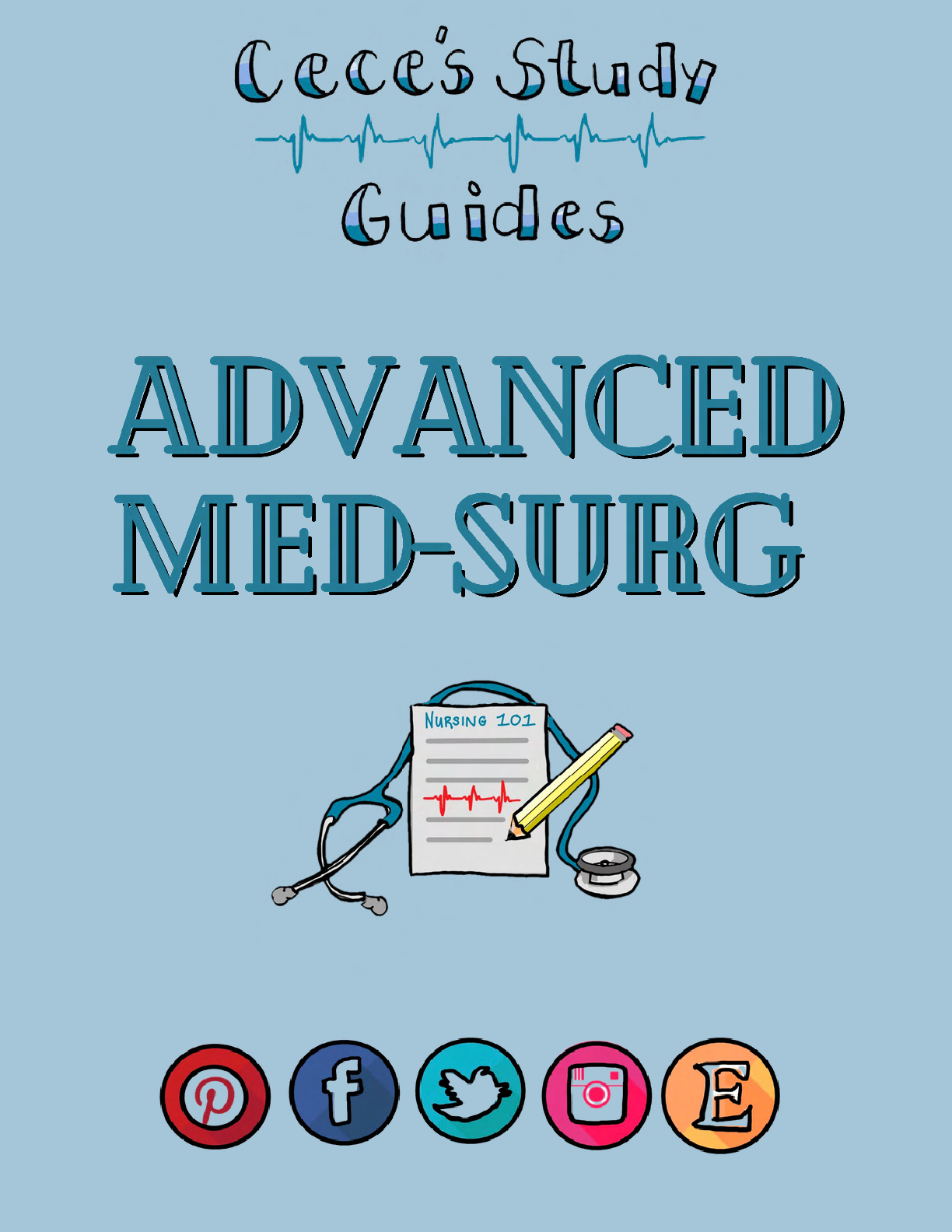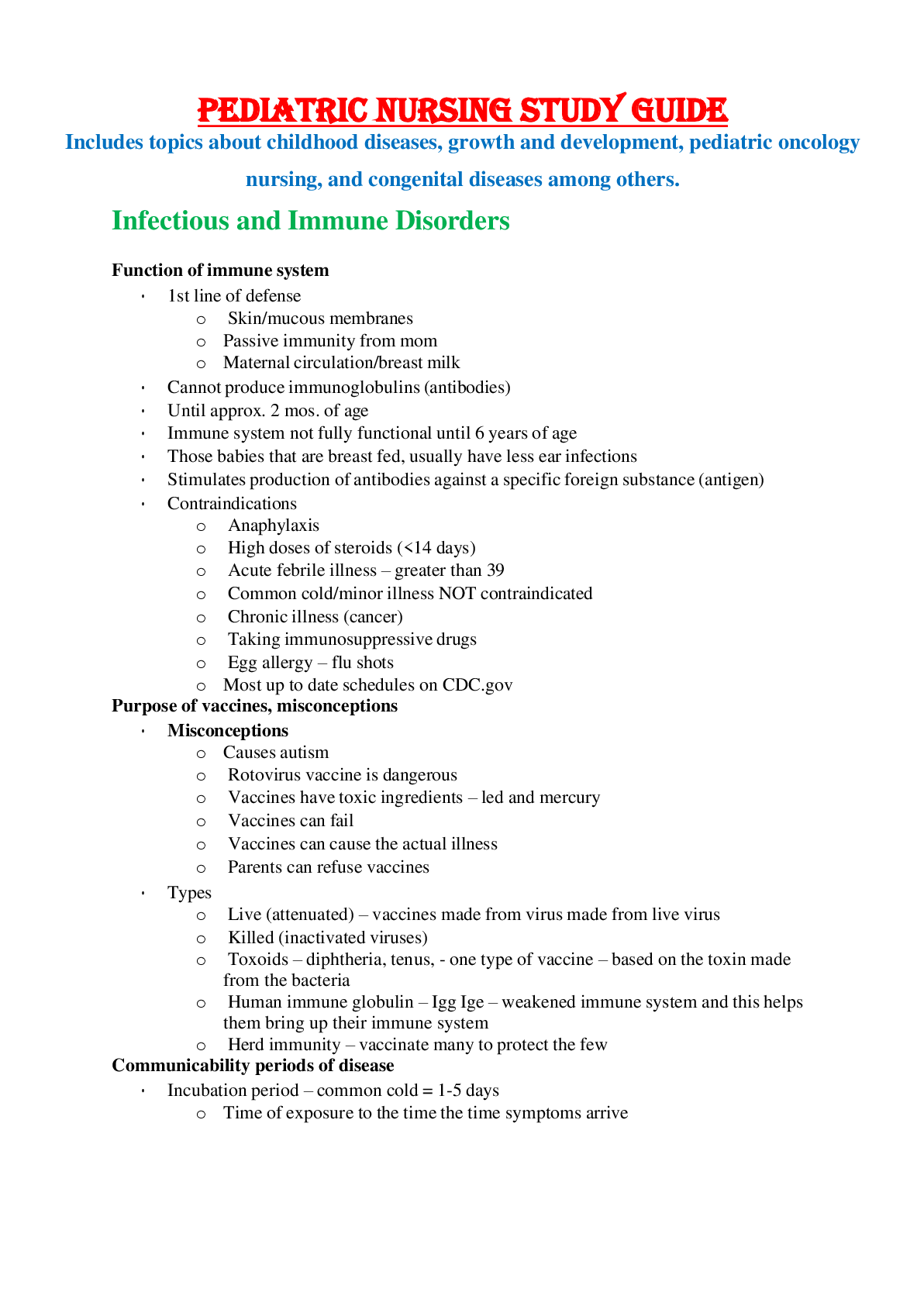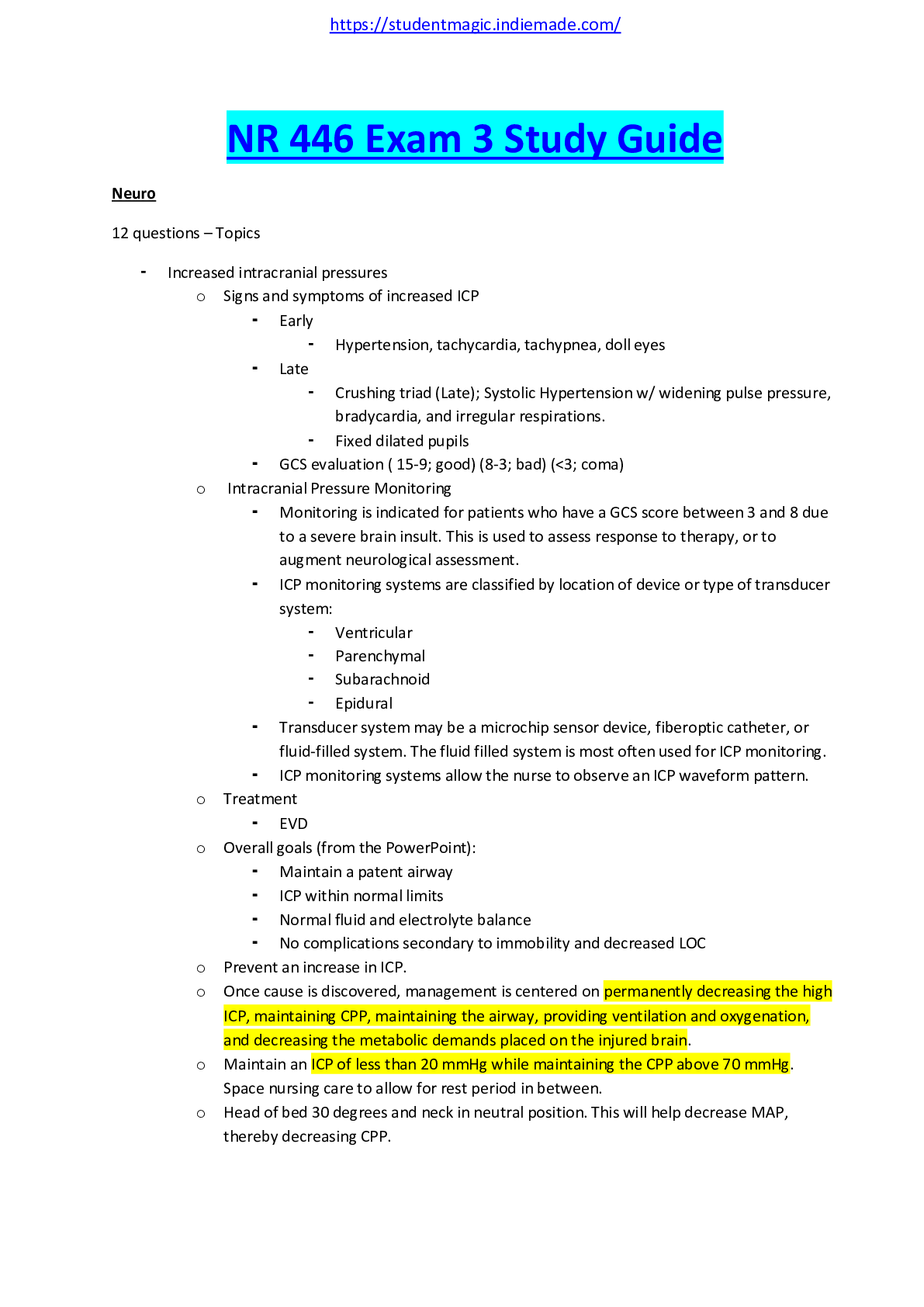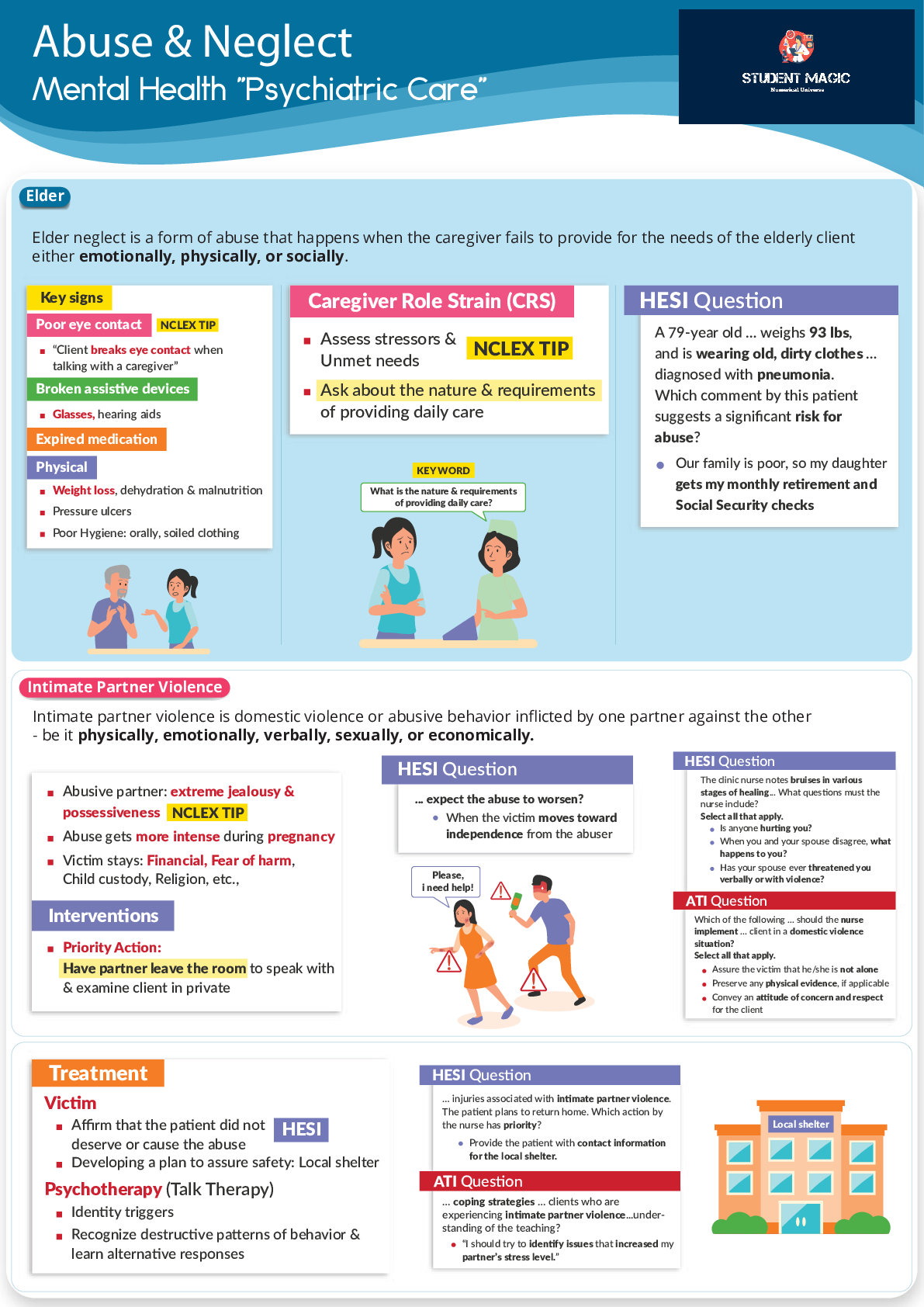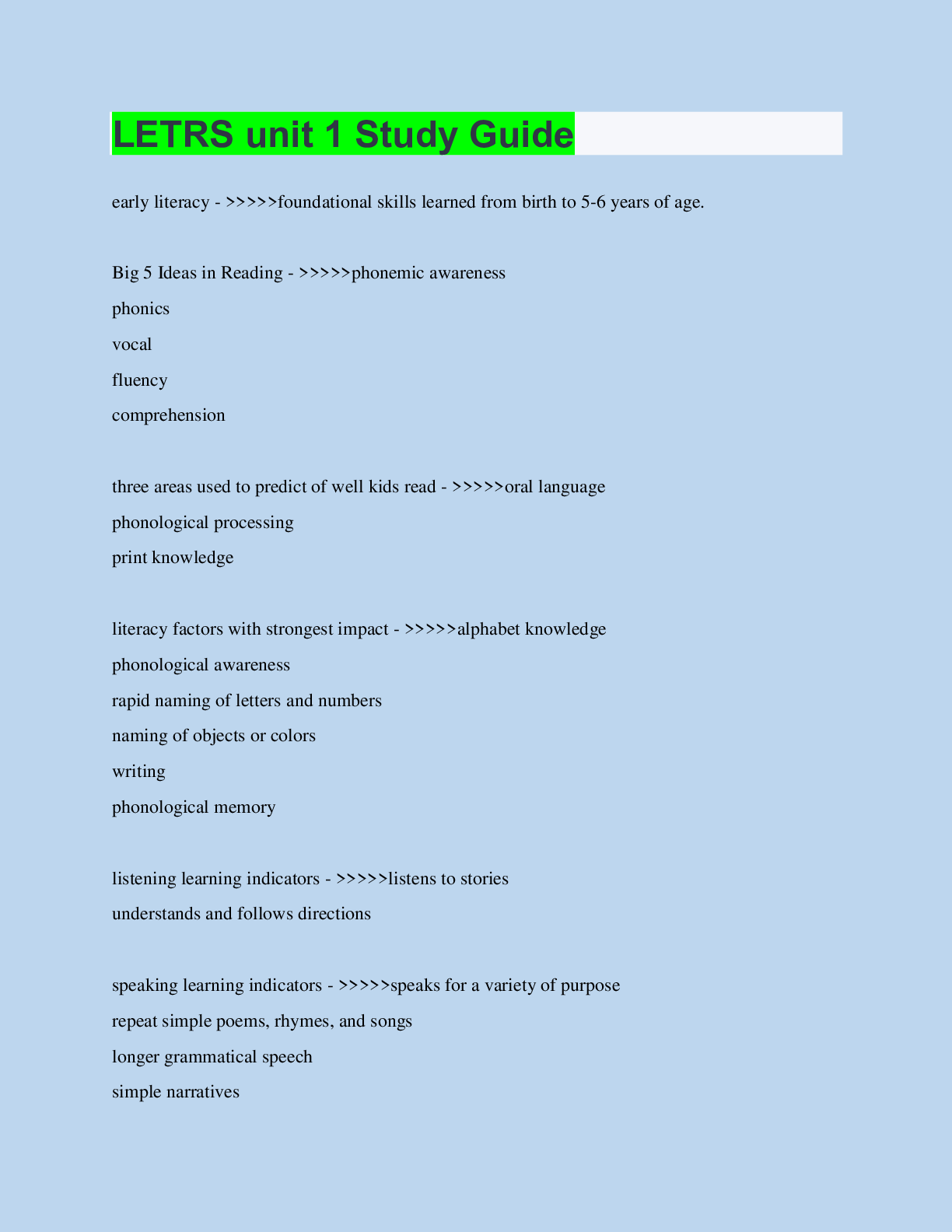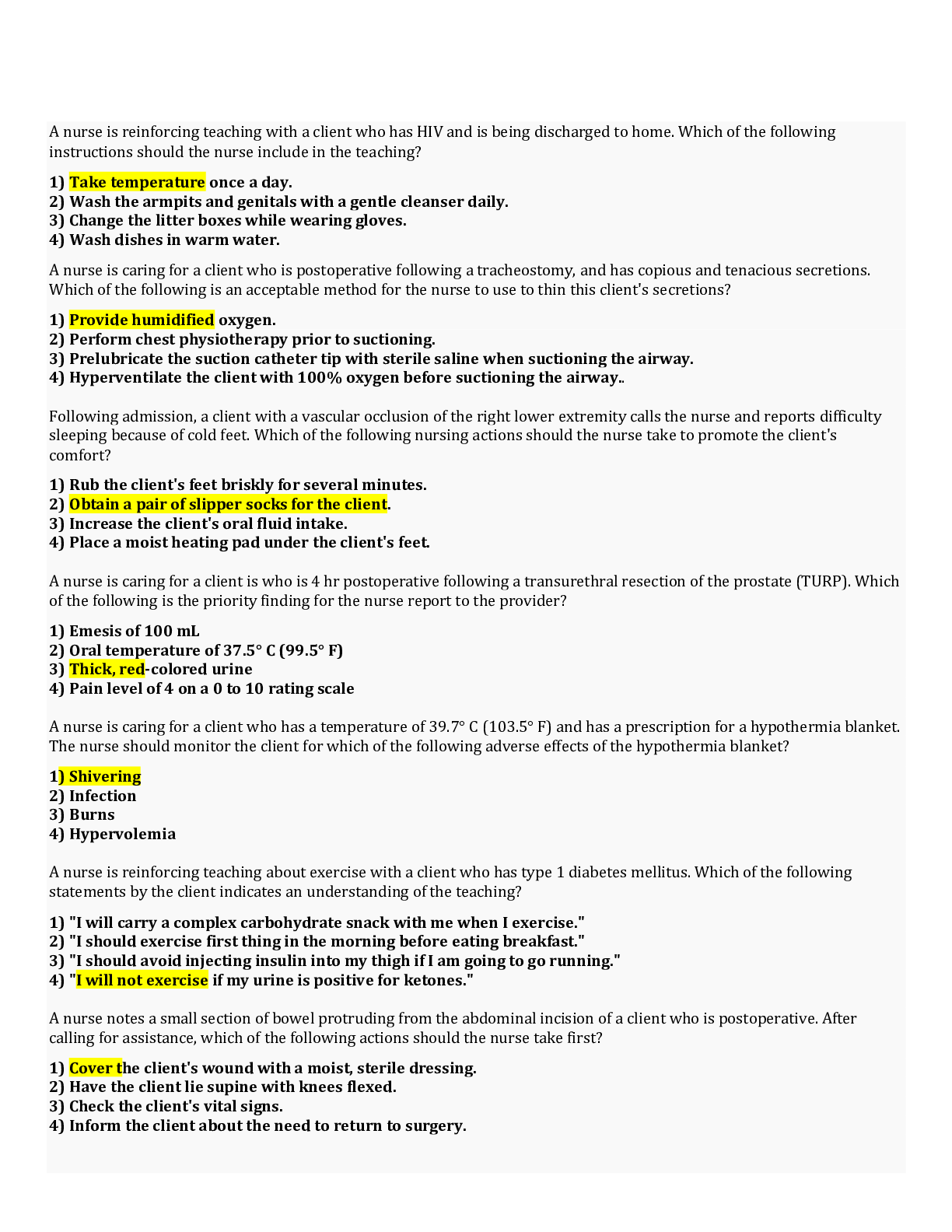*NURSING > STUDY GUIDE > Study Guide for NR 293 Exam 3 (All)
Study Guide for NR 293 Exam 3
Document Content and Description Below
Alpha2-adrenergic receptor stimulators (agonists)/clonidine o Stimulate alpha2-adrenergic receptors in the brain o Decrease sympathetic outflow from the CNS, decrease norepinephrine production o S... timulates alpha2-adrenergi receptors, thus reducing renin o Examples: Clonidine (Catapres), Methyldopa (aldomet): used for pregnant women w/htn Alpha1-blockers/”azosin,” o Block alpha1-adrenergic receptors o Management of severe heart failure (HF) when used with cardiac glycosides and diuretics o Some used to relieve symptoms of BPH- increase urinary flow rate o Example: “ Azosin” (doxazosin (Cardura) o Adverse Effects: Serious: hypotension (first dose) syncope Common: dizziness o Nursing implications: instruct pt. to lie down after taking first dose because they may become dizzy Beta-blockers “olol”: First-line treatment for heart failure & HTN o Reduce BP by reducing heart rate through beta1 blockade (block receptors for norepinhrine) o Cause reduced secretion of renin o Long-term use causes reduced peripheral vascular resistance o Adverse Effects: orthostatic hypotension, bradycardia w/ reflex tachycardia, sexual dysfunction in men, possible hypoglycemia or hyperglycemia Angiotensin-converting enzyme inhibitor, “pril” Captopril o Mechanism of Action: Inhibit angiotensin-converting enzyme, which is responsible for converting angiotensin I (through the action of renin) to angiotensin II Angiotensin II is a potent vasoconstrictor and causes aldosterone secretion from the adrenal glands Result in decreased systemic vascular resistance (afterload), vasodilation, and therefore decreased blood pressure o Indications: First-line treatment for heart failure & HTN HF (either alone or in combination with diuretics or other drugs) 1 Slow progression of left ventricular hypertrophy after MI (cardio protective) Renal protective effects in patients with diabetes Captopril and lisinopril can be used if a patient has liver dysfunction, unlike other ACE inhibitors that are pro-drugs *Pro-drugs are inactive in their administered form and must be metabolized in the liver to an active form so as to be effective o Adverse Effects: hyperkalemia & dry, nonproductive cough o Serious drug interaction: NSAIDs Angiotensin II receptor blocker “sartan” losartan (Dovan) o Mechanism of Action: Allow angiotensin I to be converted to angiotensin II, but block the receptors that receive angiotensin II Block vasoconstriction and release of aldosterone Well tolerated, do not cause a dry cough Indications: first-line treatment for heart failure & HTN o Adverse Effects: URI, headache May cause occasional dizziness, inability to sleep, diarrhea Calcium channel blockers: Amlodipine “dipine” verapamil (calan), diltiazem (cardizem) o Mechanism of Action: cause smooth muscle relaxation by blocking the binding of calcium to its receptors, preventing muscle contraction o Adverse effect: constipation High-fiber diet with plenty of fluids will help prevent constipation o Indications: hypertension Angina- ch. 23 Ischemia: o Ischemic heart disease: Poor blood supply to the heart muscle (Atherosclerosis, Coronary artery disease) o Myocardial infarction (MI): Necrosis, or death, of cardiac tissue, disabling or fatal Therapeutic Objectives o Minimize the frequency of attacks and decrease the duration and intensity of anginal pain o Improve the patient’s functional capacity o Prevent or delay the worst possible outcome: MI Cardiac glycosides: Digoxin o Therapeutic level: between 0.5-2ng/mL o Digoxin doses are held and the prescriber notified if the apical pulse is 60 beats/minute o Negative chronotropic effect decreases HR 2 o Digoxin immune Fab (Digifab) is the antidote for a severe digoxin overdose Required use of digitab when potassium level is above 5 mEq/L, severe sinus bradycardia that does not respond to cardiac pacing, or an overdose of more than 10 mg of digoxin. o Avoid bran muffins when taking digoxin o Hypokalemia increases the chance of digitalis toxicity Class III drugs: Amiodarone (ch. 25) o Mechanism of action: prolonging action potential duration o Indications: ventricular dysrhythmias o Contraindication: hypersensitivity and bradycardia or AV block Adverse effects: FDA black box warning: pulmonary toxicity, hepatotoxicity arrhythmia worsening-sinus bradycardia, constipation, QT prolongation, hypotension, blue-gray coloring of the skin on the face, arms, and neck [Show More]
Last updated: 1 year ago
Preview 1 out of 18 pages

Reviews( 0 )
Document information
Connected school, study & course
About the document
Uploaded On
May 11, 2022
Number of pages
18
Written in
Additional information
This document has been written for:
Uploaded
May 11, 2022
Downloads
0
Views
40

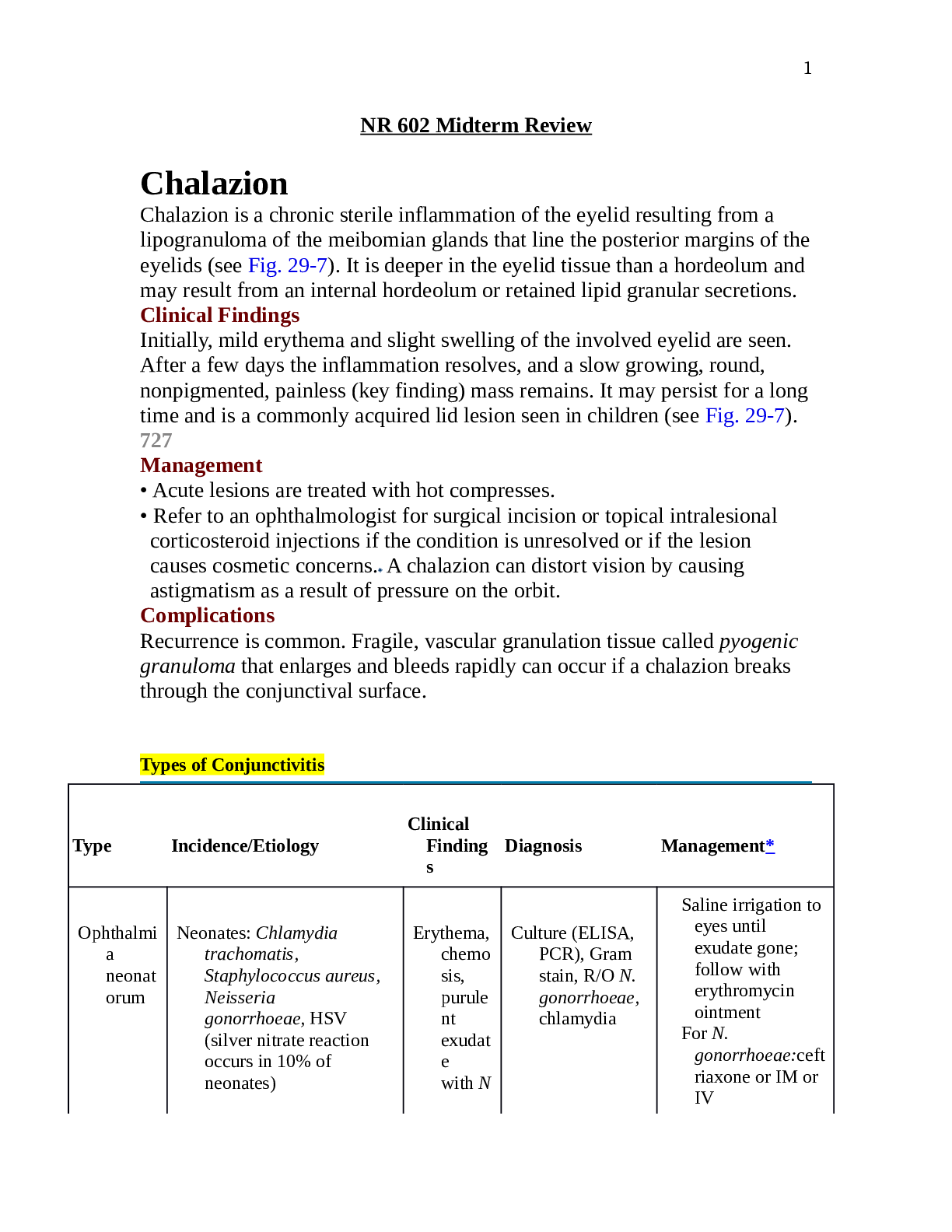
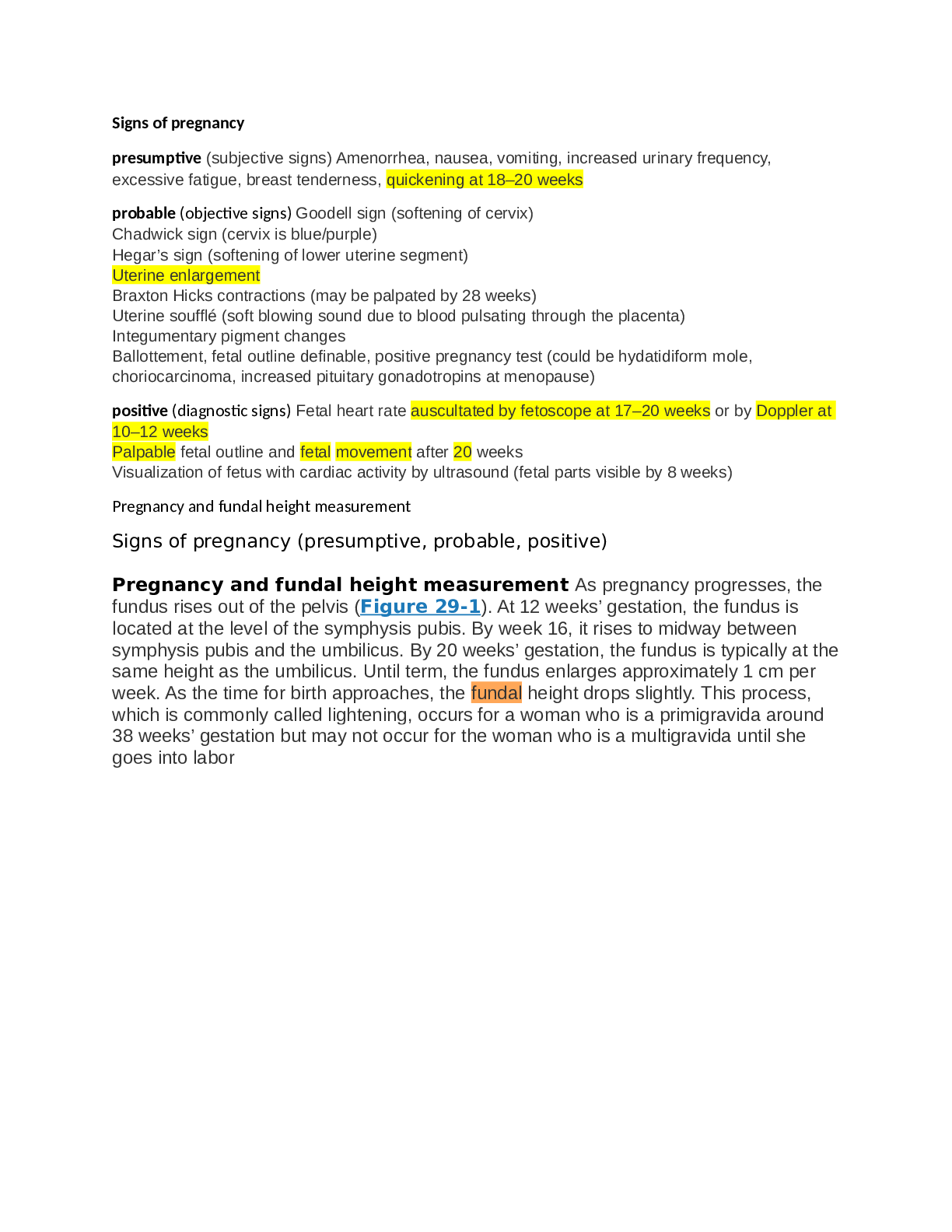
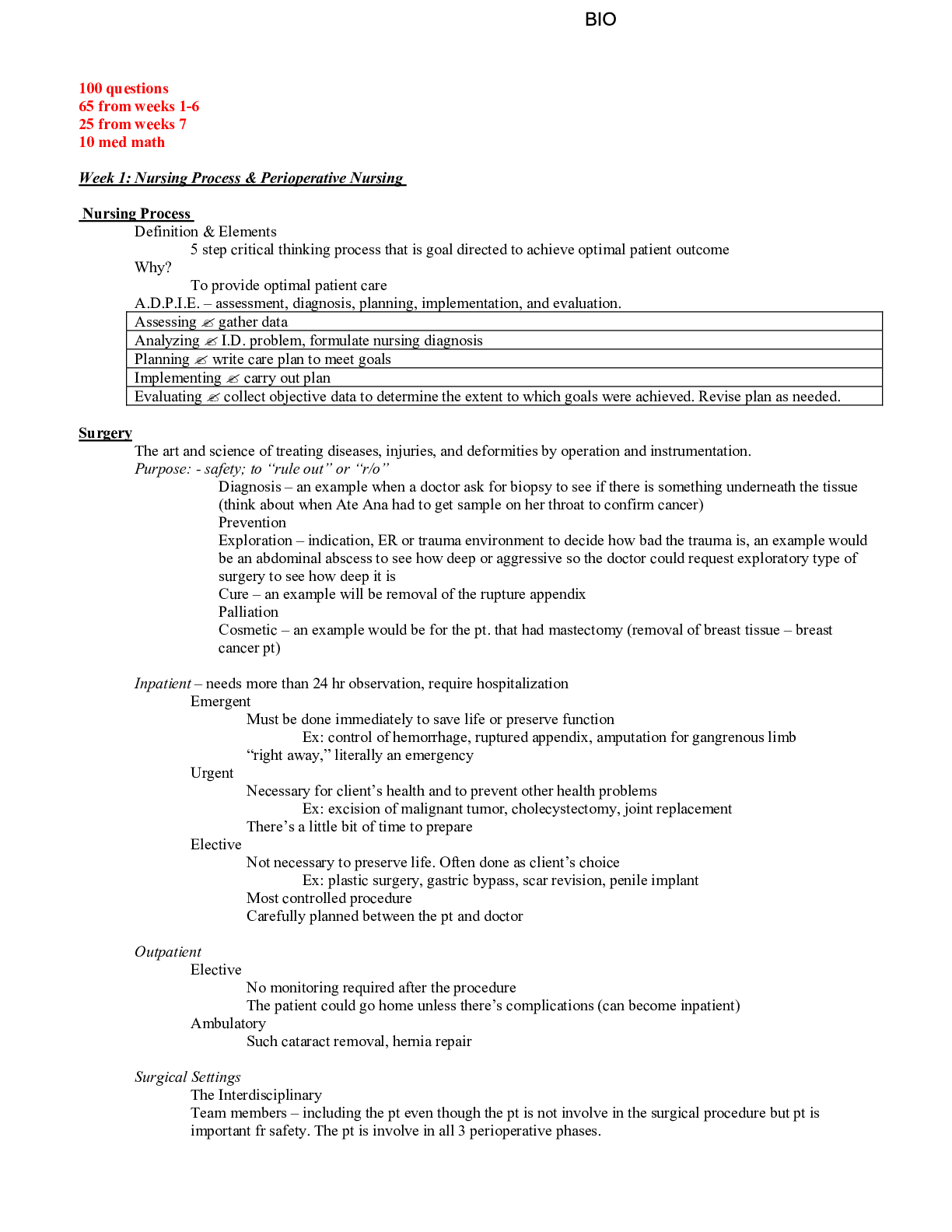

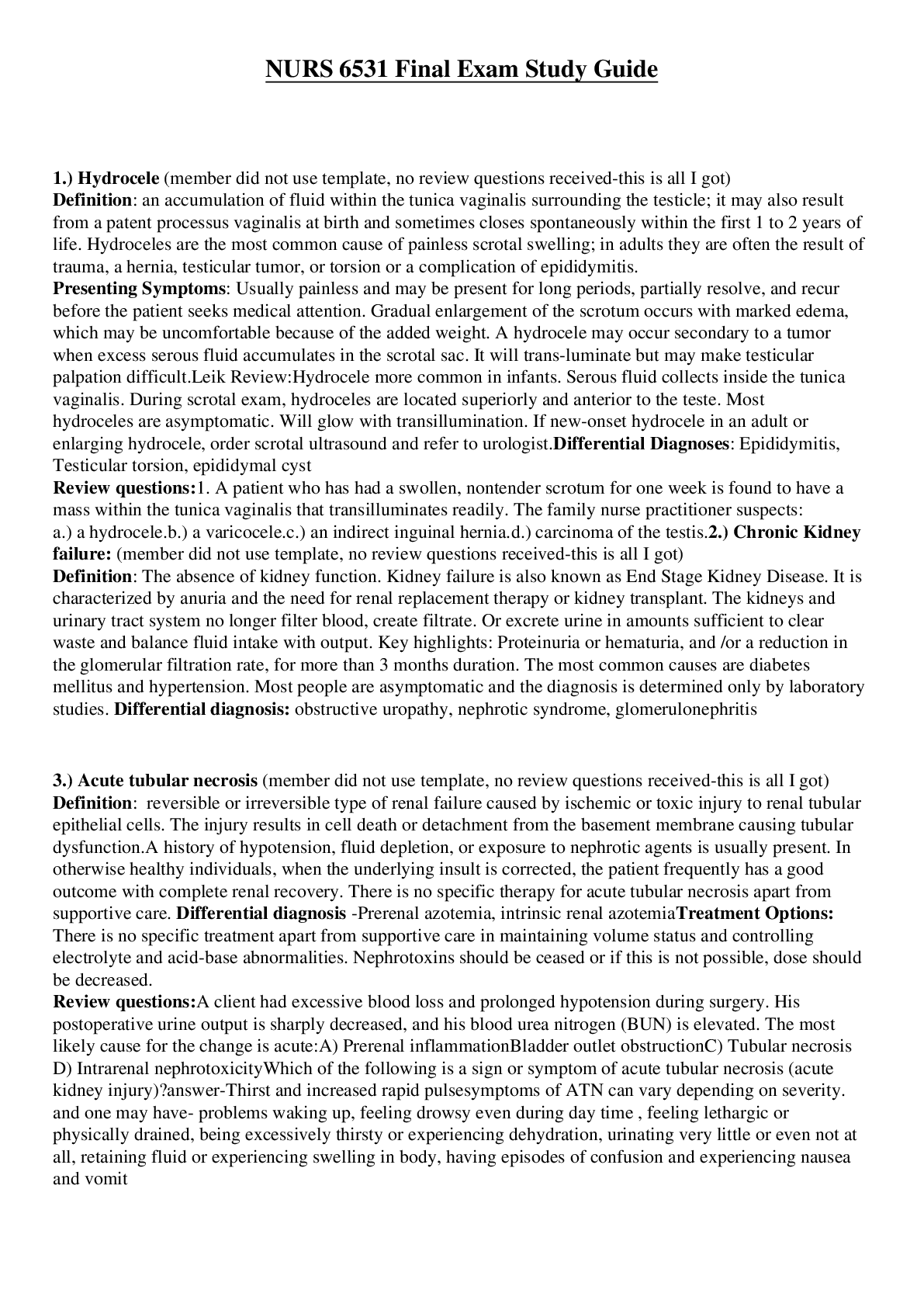

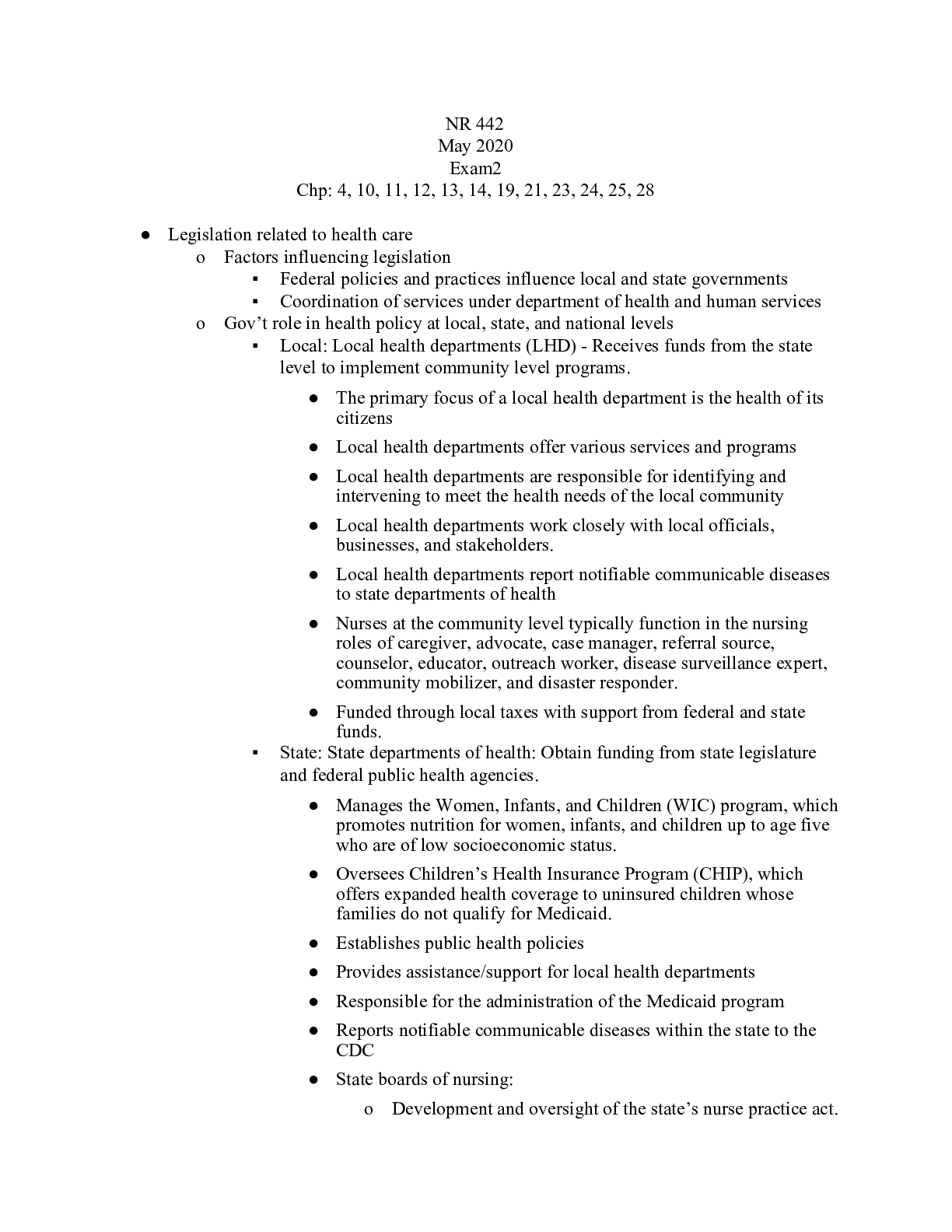

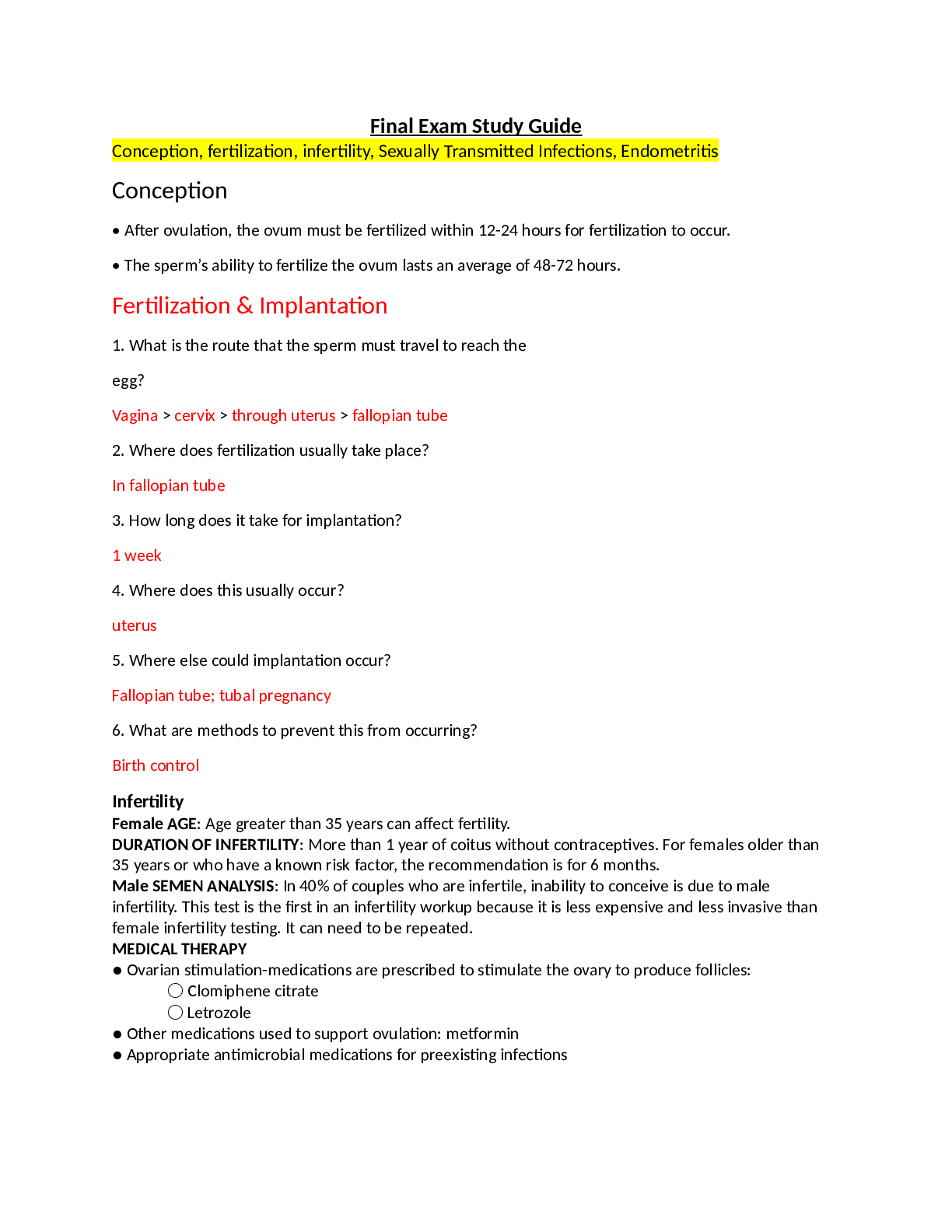
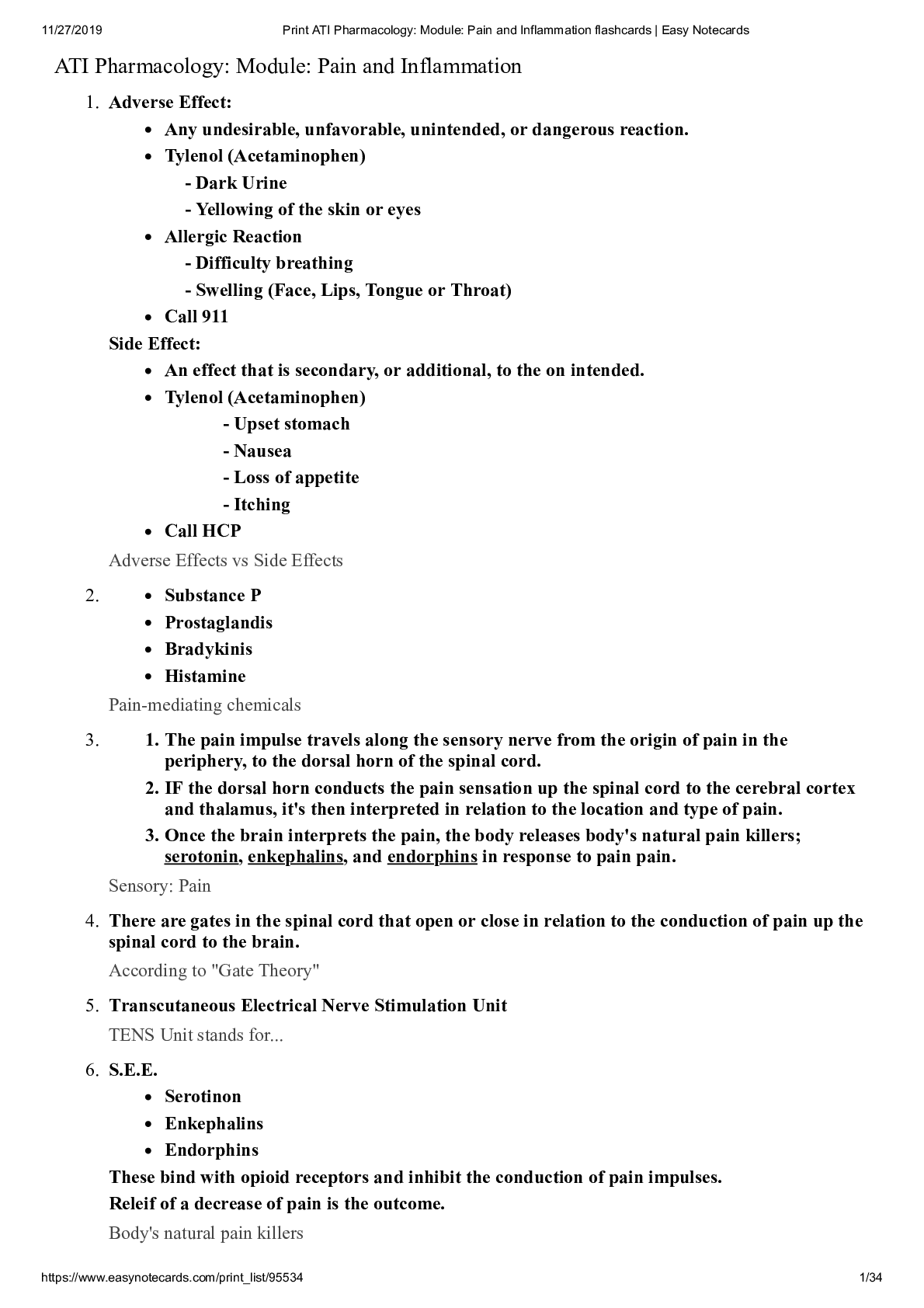
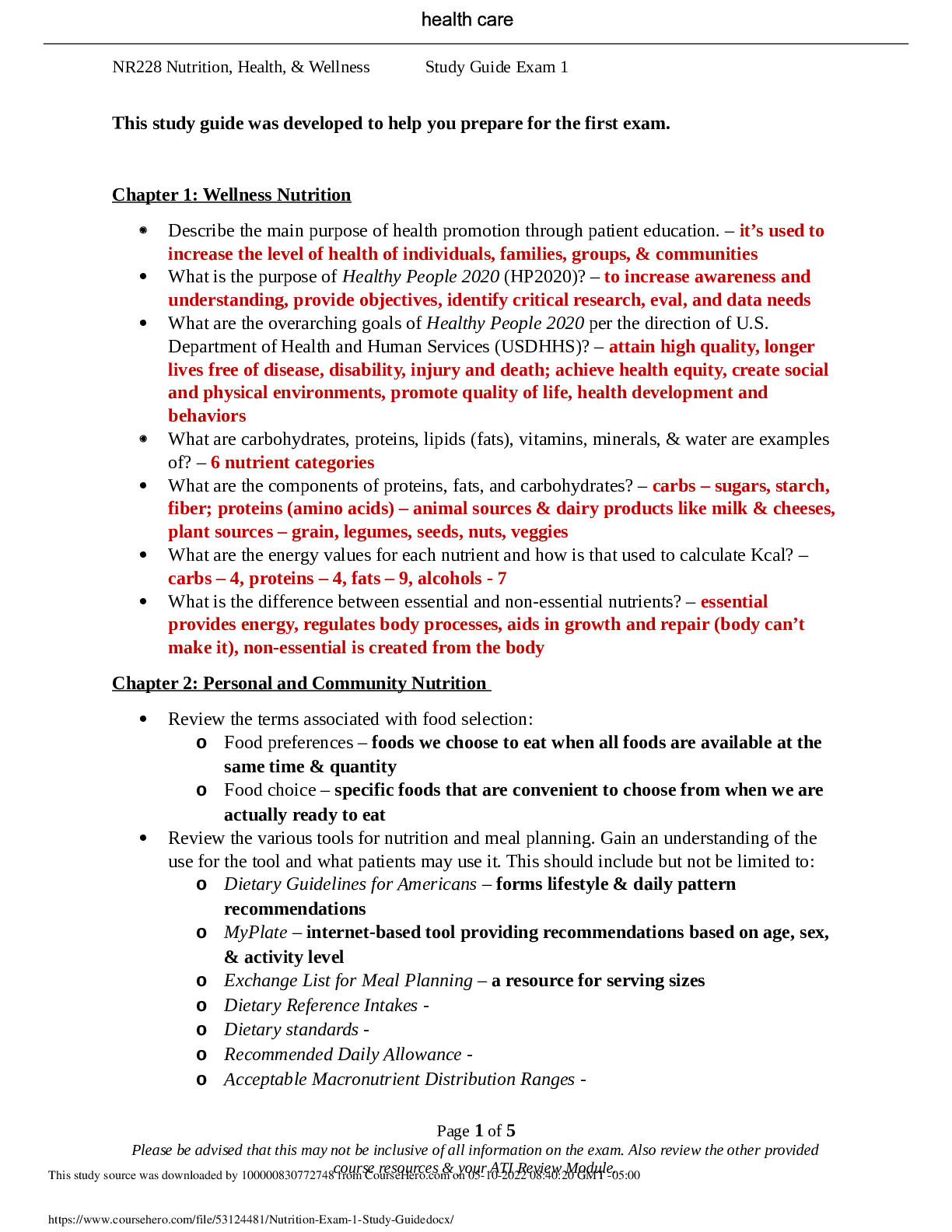
.png)
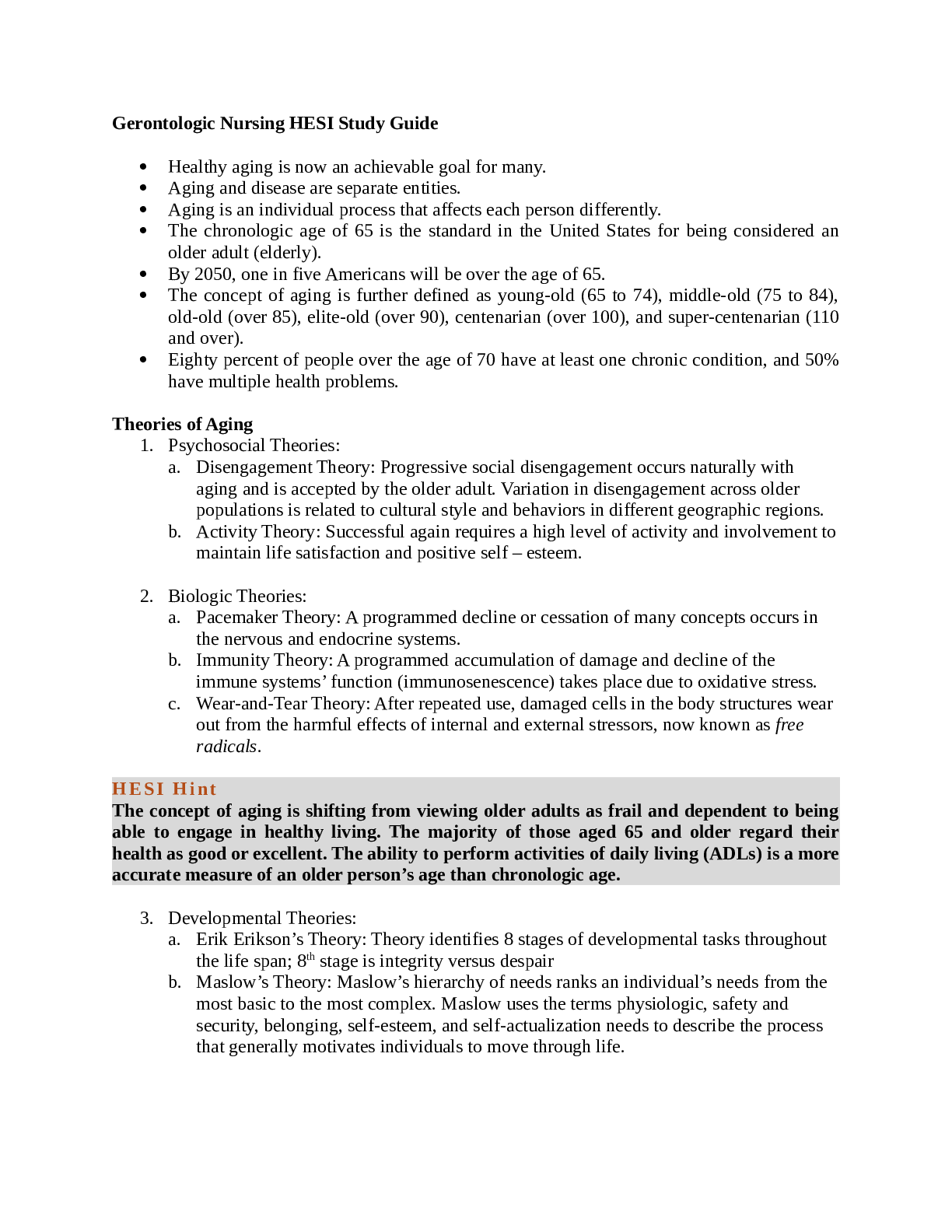
.png)

.png)
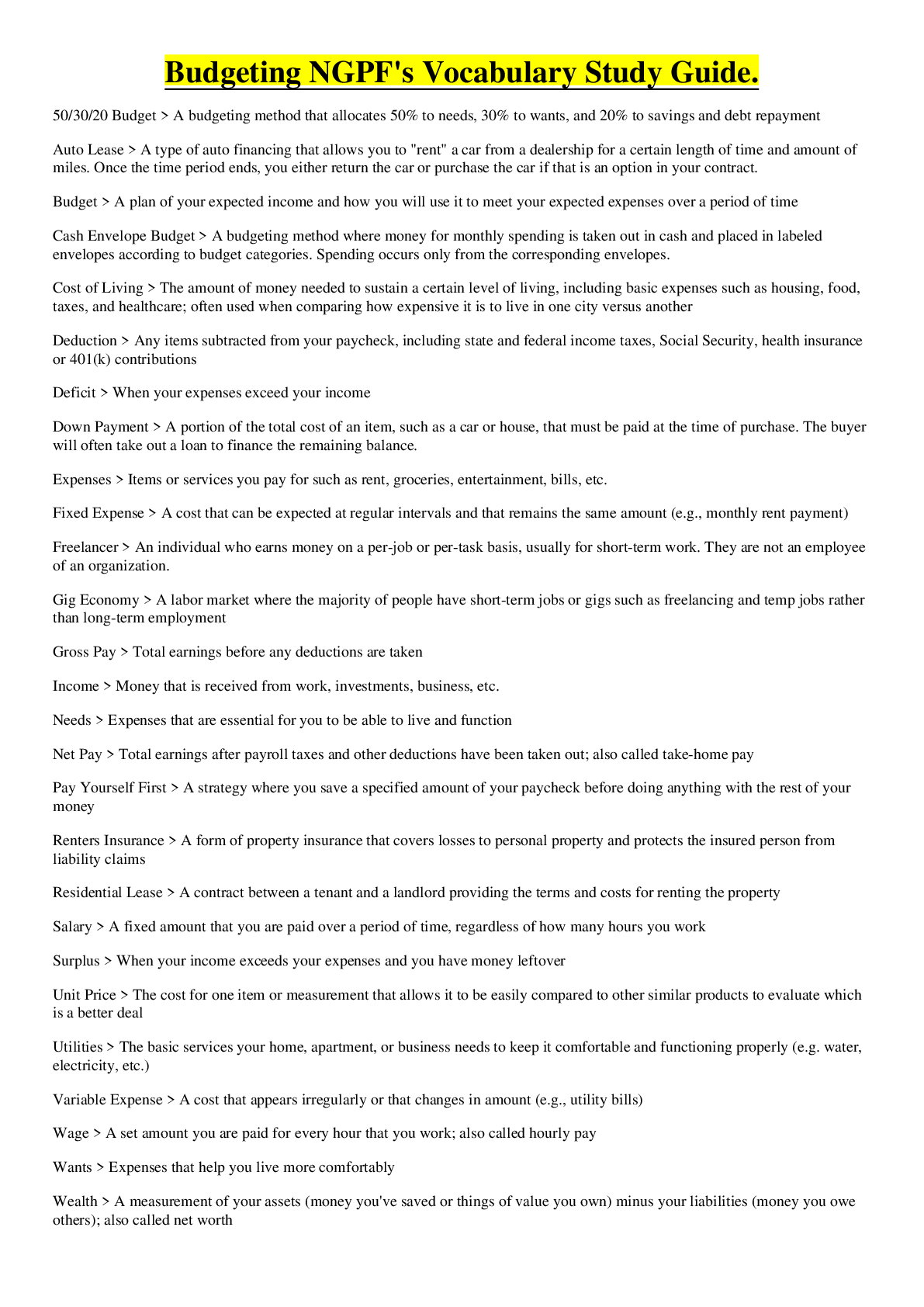

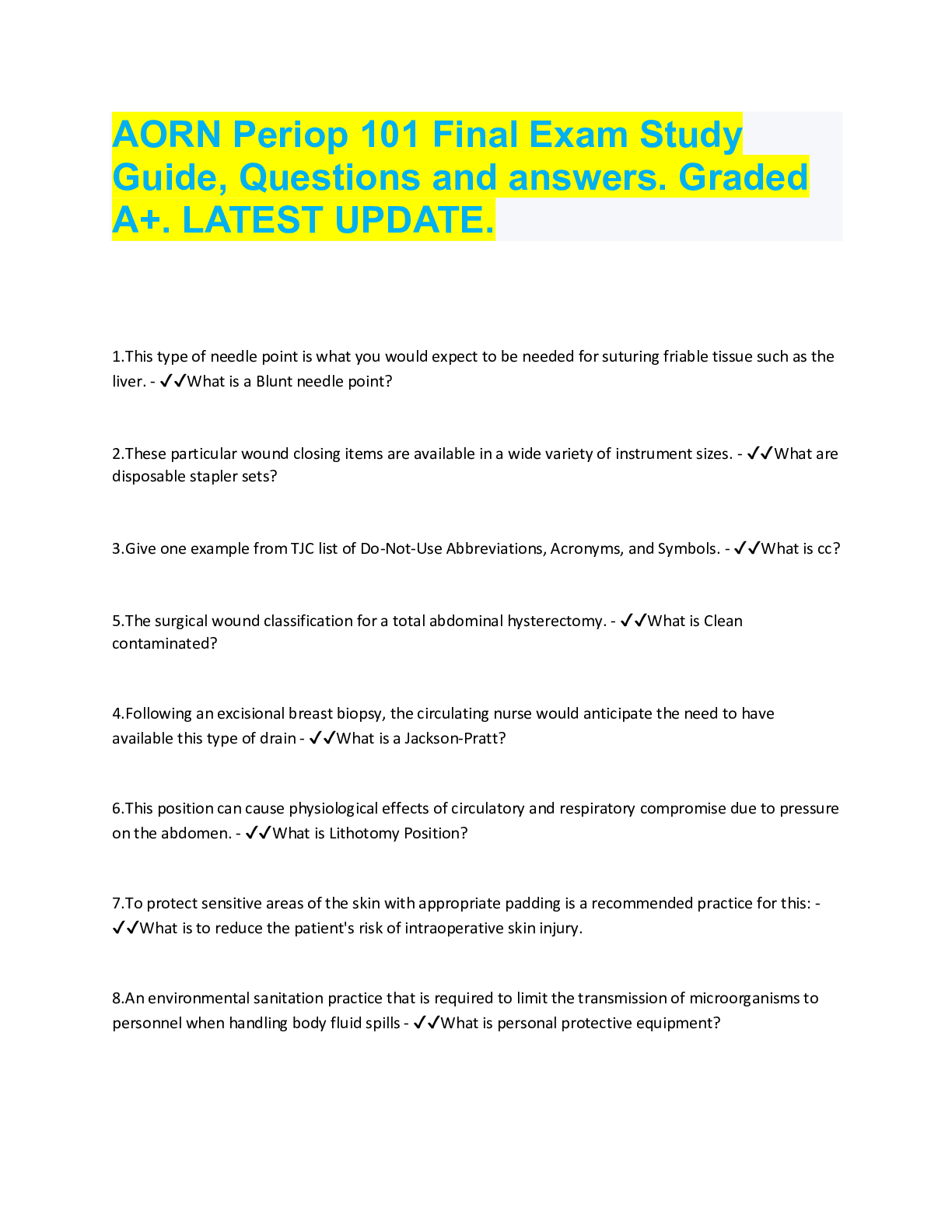
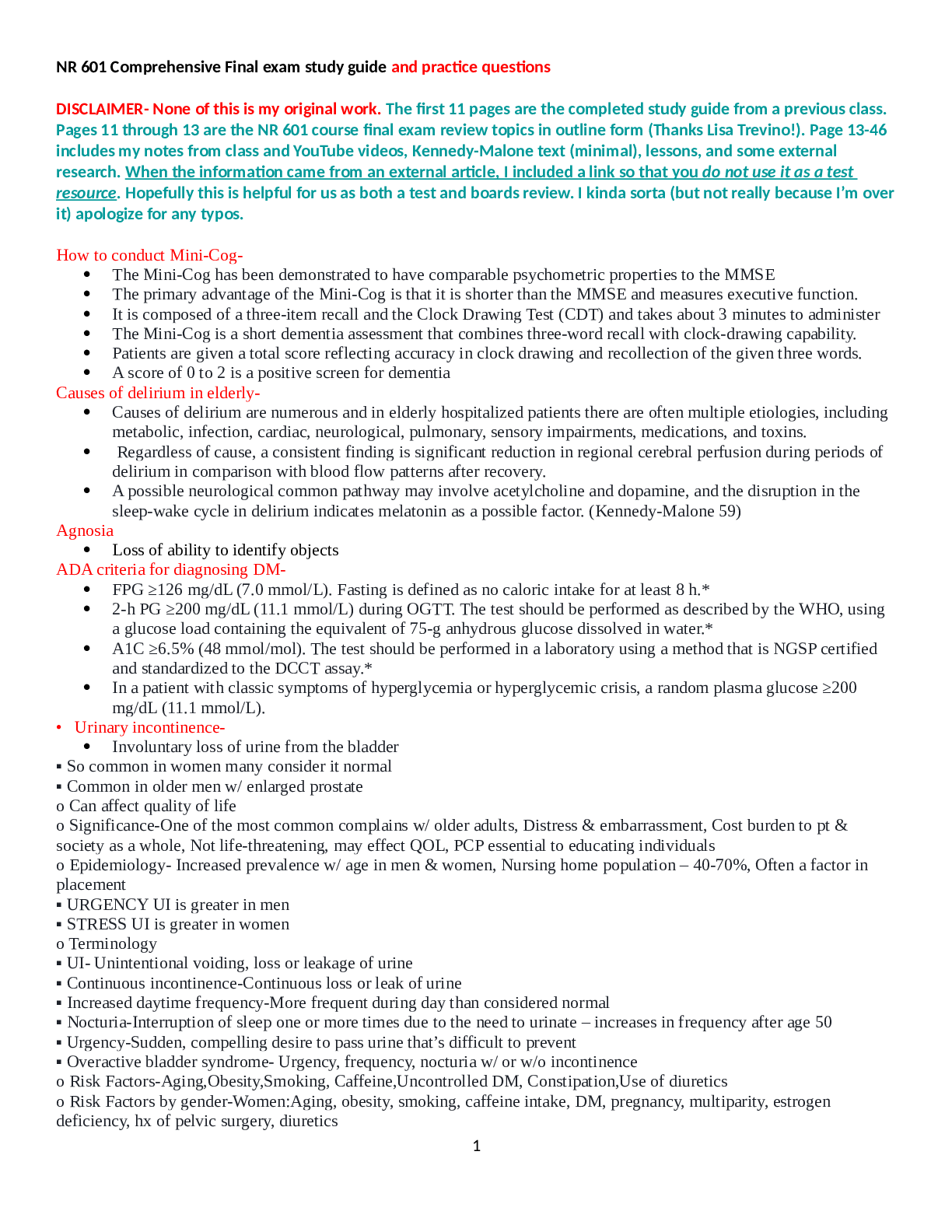



.png)

